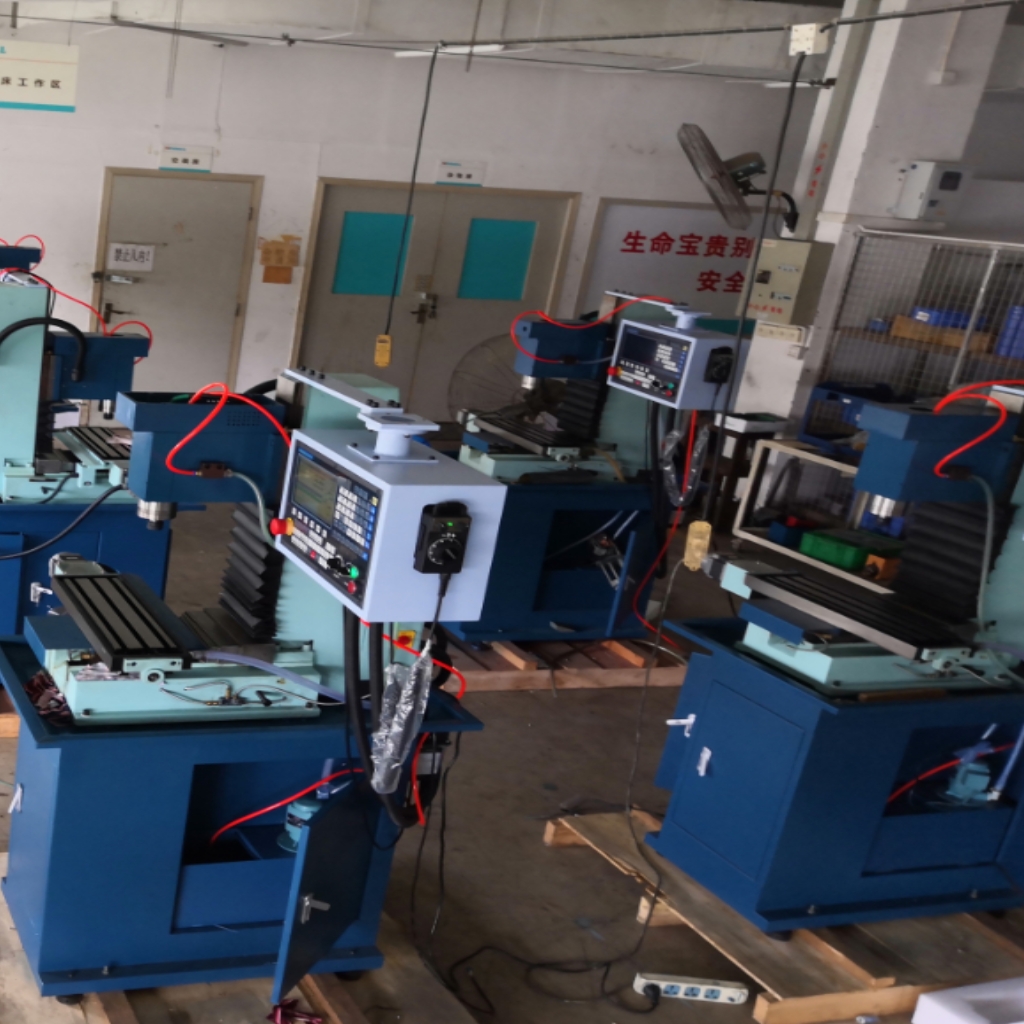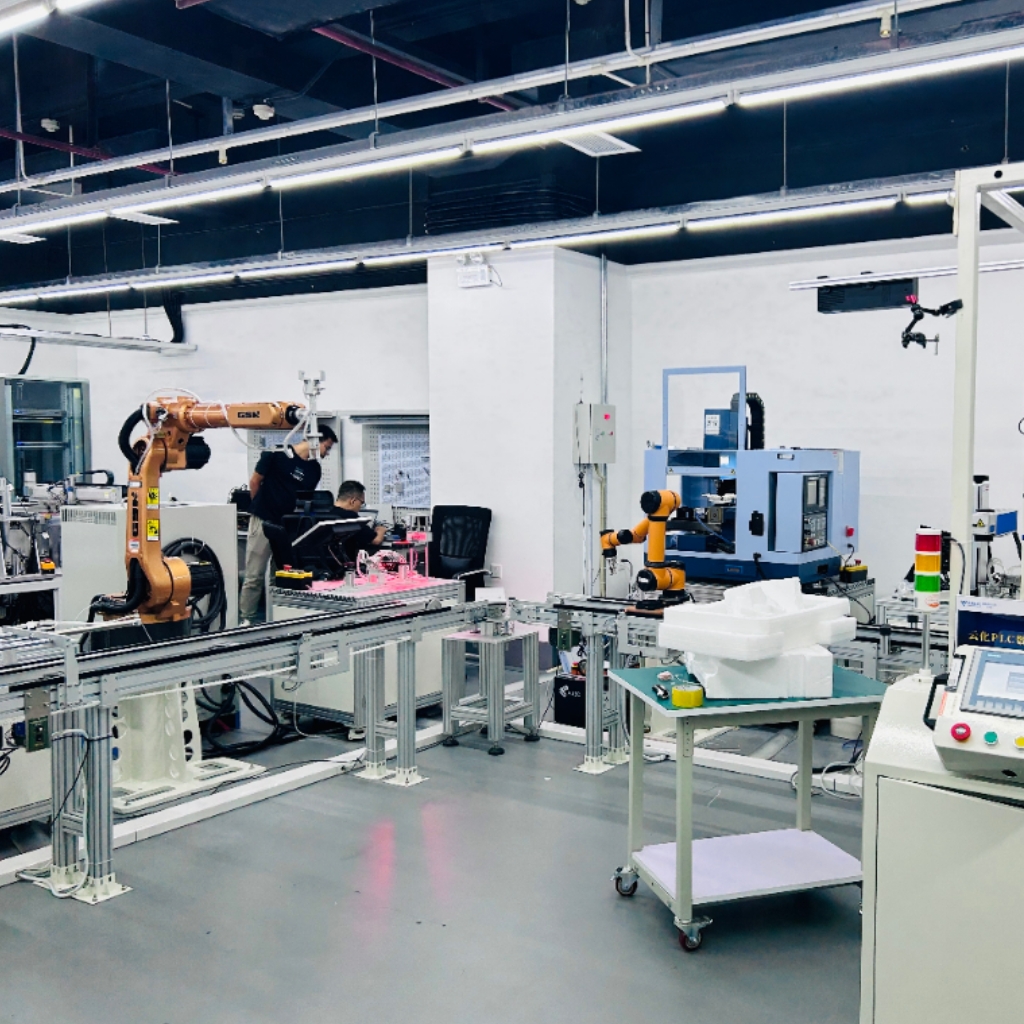Blog
Xendoll has 22 years of experience in the production of small machine tools. We will help you choose the suitable machine and share our experience in CNC machining with you.
 Aug 01, 2025
Aug 01, 2025

 1120
1120
The allure of shaping raw metal into functional or artistic objects is powerful. But for newcomers, a daunting question often arises: How long does it really take to learn metalworking? The truth, like the metal itself, isn't always straightforward. It depends heavily on your goals, dedication, resources, and how you define "learn." Let's break down the journey, offering realistic expectations for aspiring machinists, hobbyists, and future professionals.

The Short Answer (It's Nuanced!)
There's no single magic number. You can grasp the absolute fundamentals and complete simple projects in a few weeks or months with consistent practice. Reaching a level of solid proficiency for diverse projects might take 1-3 years. Achieving true mastery, encompassing advanced techniques and deep theoretical knowledge, is a lifelong pursuit often measured in decades. The key factors shaping your timeline are your goals, commitment, access to tools (like quality mini machines), and learning resources.
Factors Dictating Your Metalworking Timeline
Defining "Learned": What's Your Goal?
Basic Familiarity & Simple Projects (e.g., cutting, light filing, drilling holes, simple bends): This level is achievable relatively quickly. With focused effort (e.g., a few hours per week) and good guidance, you could be making basic items like brackets, hooks, or simple decorative pieces within a few weeks to 2-3 months. Understanding essential safety and machine operation (like a mini lathe or mill) is core here.
Solid Proficiency (Competent Hobbyist/Maker): This involves confidently using core machines (lathe, mill, grinder, welder), reading basic blueprints, understanding materials, performing precision measurements, and tackling moderately complex projects (e.g., custom tools, engine parts, detailed sculpture elements). Reaching this stage typically requires 1 to 3 years of regular practice, project work, and continuous learning from mistakes. Access to versatile tools like those from Xendoll Tools significantly accelerates progress at this stage.
Advanced Skill/Professional Level: Mastering complex setups, intricate precision work (tolerances in thousandths), advanced techniques (CNC programming, intricate welding), deep metallurgy knowledge, and efficient production methods takes many years (5+). This often involves formal apprenticeships, trade school, or extensive professional experience. It's a career-level commitment.
Your Commitment Level: Practice Makes Permanent
Frequency & Duration: Someone practicing 10-20 hours per week will progress dramatically faster than someone only getting 2 hours per month. Consistency is king. Regular, focused practice builds muscle memory and reinforces concepts.
Quality of Practice: Mindful practice, focusing on technique, accuracy, and learning from errors, is far more valuable than rushed, repetitive work without analysis. Documenting setups and outcomes helps.
Access to Tools & Equipment: The Right Tools Enable Learning
Quality & Suitability: Learning on well-maintained, precise, and appropriately sized equipment is crucial. Mini machine tools, like those offered by Xendoll Tools, are ideal for beginners and home shops. They are safer, more manageable, less intimidating, and allow you to practice fundamental techniques on real metal without needing an industrial space or budget. Struggling with poorly maintained or oversized machinery significantly slows learning and increases frustration.
Variety: Having access to core tools (lathe, mill, bandsaw, grinder, drill press, measuring tools) allows you to learn interconnected skills. Starting with a versatile mini lathe or mini mill combo provides a strong foundation.
Learning Resources & Guidance: Accelerating the Curve
Structured Learning: Formal courses (vocational school, community college workshops), apprenticeships, or comprehensive online video courses provide structured progression and expert feedback, drastically reducing the time to reach proficiency compared to pure self-teaching.
Mentorship: Learning directly from an experienced machinist is invaluable. They provide immediate feedback, tips, and safety oversight.
Self-Directed Learning (Books, Online Forums, Videos): While accessible, this path takes more discipline and time. It's easy to develop bad habits or miss critical nuances without feedback. Use reputable sources and actively seek community input (forums like Practical Machinist, hobby groups).
Your Background & Aptitude:
Mechanical Aptitude: Individuals comfortable with tools, spatial reasoning, and problem-solving often grasp concepts faster.
Related Skills: Experience with woodworking, automotive repair, engineering, or even meticulous crafts can provide transferable skills (measuring, tool handling, planning).
Patience & Perseverance: Metalworking demands patience. Mistakes happen, projects take time, and precision requires focus. Resilience is essential.
Phases of the Learning Journey: A Realistic Timeline
Months 1-3: Foundations & First Cuts. Focus on safety protocols, understanding basic machines (especially your core tool, like a Xendoll mini lathe or mill), simple measuring tools (calipers, rulers), fundamental operations (facing, turning, drilling, sawing), and material types (steel, aluminum, brass). Complete very simple projects. Expect frustration and embrace mistakes as learning.
Months 4-12: Building Competence. Gain confidence with core machines. Learn speeds/feeds, tool geometry basics, workholding (chucks, vises), and blueprint reading fundamentals. Tackle projects requiring multiple operations and tighter tolerances. Introduce basic milling or grinding if not already covered. Deepen understanding of material properties.
Years 1-3: Developing Proficiency. Handle more complex setups and projects independently. Improve precision consistently. Learn secondary processes (basic welding, heat treatment concepts, surface finishing). Start specializing if desired (e.g., precision machining, fabrication). Troubleshoot common machining problems. This is where dedicated hobbyists often find their stride.
Years 3-5+: Refinement & Specialization. Pursue advanced techniques (complex contours, threading, CNC basics), tighter tolerances, and more challenging materials. Deepen theoretical knowledge (machinability, metallurgy). Potentially move towards professional application or high-level hobby mastery.

Conclusion: It's a Marathon (with Rewarding Sprints)
So, how long does it take to learn metalworking? You can start making tangible things within weeks, become a competent maker in 1-3 years, and spend a lifetime mastering the craft. The journey's speed hinges on your definition of "learned," your dedication to regular practice, and crucially, having access to the right tools and learning resources.
For aspiring machinists and hobbyists, high-quality mini machine tools are the ideal launchpad. Brands like Xendoll Tools provide the precision, safety, and capability needed to learn core metalworking skills effectively in a home workshop setting. They remove the barrier of massive industrial equipment, allowing you to focus on developing your technique and understanding the fundamentals. Start with achievable goals, prioritize safety, practice consistently, leverage good resources, and equip yourself properly. The satisfying journey of transforming metal with your own hands is absolutely within your reach, and the first chips can fly much sooner than you might think. Visit xendolltools.com to explore the tools that can kickstart your metalworking adventure today.



 Show all our samples
Show all our samples
 Provide you with a free quote
Provide you with a free quote
 Answer all the questions you may have
Answer all the questions you may have
 Guided installation and other options
Guided installation and other options